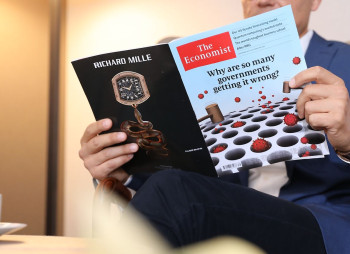The state, banks, investment funds, national and international financial organizations declare broad support for small and micro-businesses. They offer support programs for farmers, producers, carriers, restaurateurs, and representatives of other sectors of the economy. However, in reality, when it comes to obtaining financing quickly, without paperwork and for a small amount (for example, 10 thousand dollars), it is almost impossible for an entrepreneur to get funds.
Nationwide programs and international donors set a number of conditions that a small entrepreneur often cannot meet. For example, the initiative from IFC and the EBRD provides loans of 50 thousand euros to companies (legal entities) with up to 250 employees, with two years of market experience, positive development dynamics, assets of several tens of millions of euros. Targeted use of money is required, for example, for the modernization of existing equipment, machinery, or technologies to improve the environment, etc. Or in the description of the program, it is written that "The project does not provide loans directly to local small and medium enterprises". The entrepreneur for getting funds has to prepare a mountain of documents and waste time.
The question is: where to get money for a small farmer to buy machinery? Or open a service station? Or café? How to get working capital to solve current financial issues in a small online store?
There is a paradoxical situation when getting $10 million in investments for DTEK is a trifle, but $10,000 for the development of small production is an unsolvable task.
"When we started our business in 2008, we realized that there is s serious issue of financing the purchase of used equipment for farmers, carriers, builders. We successfully solved this problem. Through leasing financing, we provide an opportunity for Ukrainian entrepreneurs to develop and renew fixed assets. But our customers often need money not only to purchase machinery or equipment. Often they are looking for money secured by their equipment or real estate to close other issues. Given the demand, we have created a financial tool of "reverse leasing": when the client gives us his equipment as collateral and immediately takes it back to leasing. Such a client quickly receives a certain amount of money. More than three hundred people have already used the tool, 40% of them are farmers. But it is not a flexible tool.
In our activities (we finance SMEs only on bail and for a period of more than 12 months), we are constantly faced with the fact that clients say: "there is nowhere to get money", "I need a little and for a short time, but no one gives", "Banks think that my business is unattractive.”
There are many such complaints from those who want to work. That is why we have created a new financial company that will provide a full range of financial services to micro and small businesses.
Serhii Vaskov, co-founder of ESKA Capital and Safra Finance
According to a survey of Ukrainians in a special project from liga.net, every 5th person wants to become a businessman. However, the rapid development of Ukrainian small and micro businesses is hampered by 3 key problems: limited access to finance, lack of knowledge and information, inability to apply technology and innovation. Financing is the easiest problem, however, it is still unresolved.
If the option to rely on the state, banks, MFIs, pawnshops is not suitable, what alternatives do small entrepreneurs have?
"We decided to establish a company that specializes exclusively in SME financing and provide venture capital not into IT (there are enough such companies), but to those who are engaged in agriculture, manufacturing, light industry, food production, hotel and restaurant business, creative industries, etc. We know the financial system of Ukraine from the inside, we have been doing business for over 15 years, our experience will suffice.
In the USA there are Kabbage and Fundera, in Great Britain — Capitalise and Boost Capital, in Russia — Tochka Bank, and in Ukraine there will be Safra Finance. Of course, we are not the only ones in the financial services market, but we will offer the best conditions."
Anton Dyadyura, co-founder of ESKA Capital and Safra Finance
Why do we have to help SMEs
According to OpenDataBot, there are about 2 million private entrepreneurs in Ukraine. According to the State Statistics Service, there are almost 1.4 million legal entities. SMEs are the backbone of Ukraine's economy, creating 60% of GDP and providing 79% of jobs. Without this foundation, our economy cannot grow, because small companies have a very positive impact on local communities and create more jobs than large corporations.
In the United States and Germany, small businesses are companies with up to 500 employees. In Ukraine, a micro-enterprise has up to 10 employees and a net income of up to €700,000 per year; a small enterprise has up to 50 employees and a net income of up to €3 million; a medium-sized business has up to 250 people and €40 million net income. Gradation should exist in order to classify businesses and provide them with government benefits. This is how it works in the EU and the US. In Ukraine, gradation exists for statistics. And if for sole proprietors there is a so-called single tax of 5%, then for small and medium-sized businesses such preferences are not provided.
Favorable conditions are needed for the development of entrepreneurship. The state must support SMEs. The country must have a good economic climate and healthy competition for businesses to grow. In almost all developed countries, businesses are supported at both the national and regional levels. This is one of the leading trends in European and global banking regulation. In addition to legislation, governments provide financial assistance, information and educational support, advice, marketing research, and sometimes direct ordering of products and services from local businesses. In Ukraine, everything is still wrong.
On the other hand, there are many private investors who would be willing to invest in someone's business. They call the key problem in the investment market the lack of well-prepared projects and calculated business plans that will guarantee a return on investment, and there is a lack of teams and specialists for implementation. Ukrainian private investors are ready to take a step towards small and micro businesses, but instead are waiting for efforts by SMEs to reduce risk. These two groups of people on different sides of the business need to be brought together to help both.
Which financial services are available
At Safra Finance, entrepreneurs will be able to receive a variety of services: from lending secured by real estate/machinery/cars and unsecured lending to direct investment with subsequent joint business management. And:
- Factoring: financing that allows you to "unlock" funds and solve the problem of receivables;
- Working capital without collateral or overdraft based on the analysis of business indicators;
- Loans secured by cars, equipment, real estate;
- Loans for the purchase of machinery, equipment, real estate (mortgage);
- Trade financing of imports and exports for foreign economic activity;
- Long-term financing of the company's development projects;
- Affiliate programs: expansion of the agency network;
- Attracting capital from private investors for joint investment in entrepreneurial projects.
To see what opportunities are available, potential customers just need to fill out an online application on the website: https://safra-finance.com.ua and answer a few questions about their business.
Safra Finance has every chance to take a leading position in the SME financing niche, as it enjoys a number of advantages, speed, and flexibility in decision-making. The company plans to help even those who have only the idea of a product, service, business. They will help to bring order to the financial management of companies, help in resolving legal and other financial issues.
"We expect to fund several billion hryvnias. We have a long-term strategy in Ukraine because we see many prospects. Ukrainian business has huge opportunities in basic niches, in import substitution, in the service industry. In many respects, Ukrainian entrepreneurs provide better service and produce better products than European or American competitors. Therefore, limited access to finance should not stand in the way of the development and growth of our economy.
Small businesses should not rely on the state or international donors, they should remember that entrepreneurship should rely on itself. This is a game with a minimum of rules and a maximum of opportunities. But if some, more experienced entrepreneurs will help other entrepreneurs, there will be a favorable basis for mutually beneficial cooperation. "
Serhii Vaskov, Managing Partner of ESKA Capital and Safra Finance






